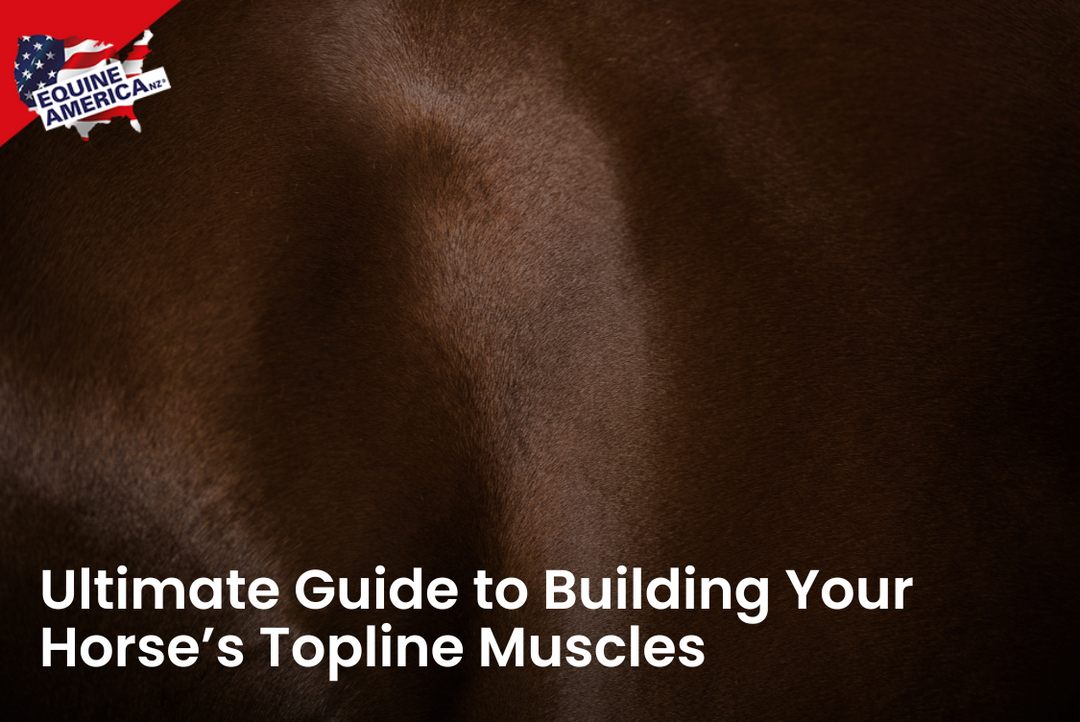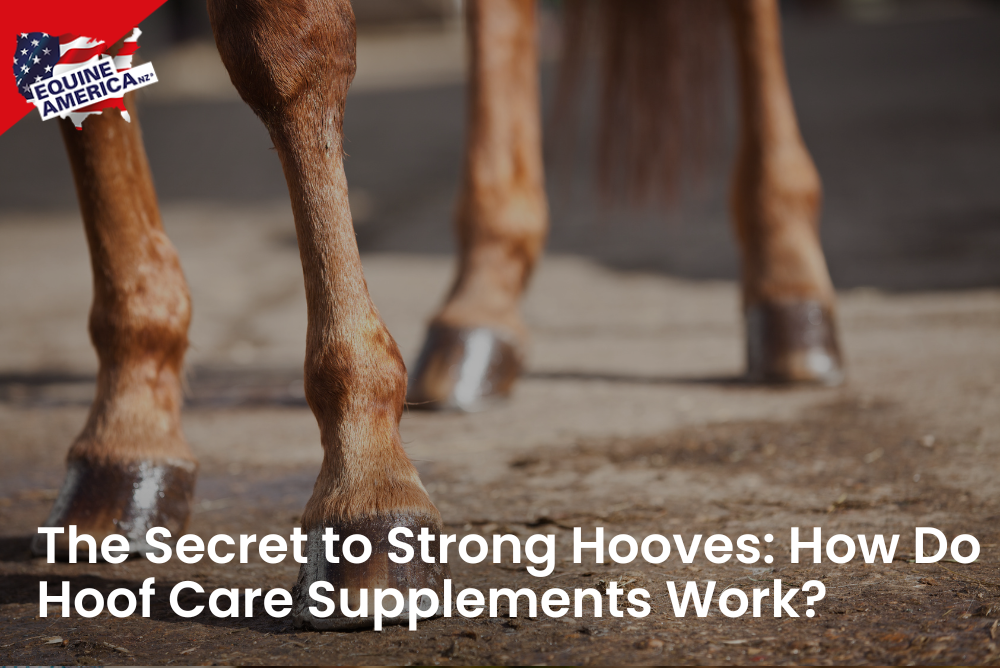Horses, these majestic creatures, are not just athletes but also our companions. Ensuring their well-being is paramount to any horse owner. One critical aspect of equine health often overlooked is their respiratory system.
In this comprehensive guide, we will delve into the world of respiratory health for horses. We will explore the intricacies of their respiratory system, learn how to identify common problems, and discover ways to prevent and treat issues to ensure your equine friend enjoys optimal health.
Understanding the Equine Respiratory System
Before we can safeguard our horses' respiratory health, it's essential to understand the inner workings of their respiratory system. Equines have a highly efficient respiratory system adapted for their unique lifestyle and physiology.
Anatomy of the Equine Respiratory System
Within the equine respiratory system, the nasal passages, sinuses, trachea, bronchi, and lungs all play crucial roles. The nostrils serve as the entry point for air, which travels through the nasal passages, where it is warmed and humidified before reaching the lungs. The trachea, or windpipe, carries air into the bronchi and eventually into the lungs, where oxygen exchange occurs.
How Horses Breathe
Horses are obligate nasal breathers, which means they primarily breathe through their nostrils. This remarkable adaptation allows them to filter out dust and allergens more effectively. Horses also employ a unique breathing pattern, utilizing their abdominal muscles and diaphragm to draw in air, as opposed to the chest muscles used by humans. This allows for a greater volume of air intake, which is crucial for their energy-intensive activities.
Identifying Respiratory Problems
Early detection of respiratory issues is vital to providing prompt and effective treatment. Horses often conceal their discomfort, making it essential for horse owners and caretakers to be vigilant.
Common Signs of Respiratory Issues
Watch out for signs such as coughing, nasal discharge, increased respiratory rate, and labored breathing during exercise. In more severe cases, horses may exhibit a flared nostril, heave line development, or a persistent cough.
Diagnostic Methods for Horses
To pinpoint the source of respiratory distress, veterinarians employ diagnostic tools such as endoscopy, bronchoalveolar lavage, and radiography. These tests help identify underlying causes, whether it's allergies, infections, or other respiratory conditions.
Preventive Measures
Prevention is always better than cure. Maintaining a healthy respiratory system in horses requires a multi-faceted approach, encompassing various aspects of care.
Proper Ventilation in Stables
Well-ventilated stables with ample airflow can significantly reduce the concentration of dust and airborne pathogens. Adequate ventilation also helps regulate temperature and humidity, creating a comfortable environment for your horse.
Quality Hay and Bedding
The quality of hay and bedding materials directly impacts respiratory health. Dusty hay or bedding can introduce harmful particulates into the air. Opt for clean, dust-free alternatives to promote clean air in the stable.
Regular Exercise
Exercise is essential for overall health and a well-functioning respiratory system in horses. Regular physical activity helps maintain lung function and promotes cardiovascular health. However, it's crucial to ensure horses exercise in dust-free arenas or pastures.
Nutrition and Hydration
Diet plays a pivotal role in equine respiratory health. Providing a balanced diet rich in essential nutrients and low in dust-producing ingredients is crucial. Adequate hydration is equally important, as it helps to keep mucous membranes moist and promotes efficient mucus clearance.
The Role of Diet in Respiratory Health
Horses should have access to high-quality forage and concentrate feeds that are free from mold, dust, and contaminants. Pelleted feeds are often a better choice as they minimize the inhalation of particles compared to dusty grains.
Importance of Adequate Hydration
Ensure your horse has access to clean, fresh water at all times. Proper hydration helps maintain optimal mucous viscosity, making it easier for the respiratory system to clear mucus and debris.
Vaccinations and Deworming
Vaccinations and deworming protocols are critical for preventing respiratory infections, especially in a stable or herd setting.
Equine Influenza and Rhinopneumonitis Vaccinations
Vaccinations against equine influenza and rhinopneumonitis are crucial. These diseases can spread rapidly in group settings, and vaccinations provide essential protection.
Deworming Protocols
Regular deworming helps control parasites that can compromise respiratory health. Work with your veterinarian to establish a deworming schedule tailored to your horse's specific needs.
Environmental Factors
Environmental factors can significantly impact respiratory health. Dust, allergens, and other irritants in the horse's surroundings can exacerbate respiratory issues.
Dust and Allergens
Dust is a common respiratory irritant in stables. To mitigate this, use dust-free bedding, regularly clean and dampen the stable floor, and provide ample ventilation. Additionally, consider using equine masks or fly sheets to protect against allergens during turnout.
Managing Environmental Triggers
Identify and manage environmental triggers that may exacerbate respiratory issues. This could include removing moldy hay, reducing exposure to pollen, or avoiding dusty riding arenas during peak allergy seasons.
Quarantine and Biosecurity
Implementing quarantine and biosecurity measures can help prevent the introduction and spread of respiratory diseases within your horse population.
Preventing Respiratory Disease Spread
Isolate new arrivals for at least two weeks to monitor for signs of illness and prevent potential disease transmission. Ensure proper disinfection protocols and limit contact between horses during outbreaks.
Quarantine Protocols
Work with your veterinarian to establish thorough quarantine protocols, including health checks, testing, and vaccination requirements for new arrivals. These measures will help protect your established herd from respiratory disease threats.
Treatment Options
Despite your best efforts, horses may still develop respiratory issues. In such cases, timely treatment is essential for a full recovery.
Medications and Therapies
Your veterinarian may prescribe medications such as bronchodilators, anti-inflammatories, or antibiotics depending on the diagnosis. Additionally, therapies such as nebulization and physiotherapy can aid in recovery.
Veterinary Care
Regular veterinary check-ups are crucial for maintaining your horse's respiratory health. Your veterinarian can provide guidance on preventive measures, diagnose issues early, and develop treatment plans when needed.
Final Thoughts
In the pursuit of equine well-being, respiratory health should never be overlooked. A deep understanding of the equine respiratory system, vigilance in identifying problems, and proactive preventive measures can go a long way in ensuring your horse enjoys a long and healthy life. Remember, a healthy horse is a happy horse, and their well-being depends on your knowledge and care.
If you’re looking for high-quality supplements for your horse, consider exploring the range of products offered by us here at Equine America NZ. Our extensive selection of products along with performance-enhancing supplements provide you with suitable options to support your horse’s overall health and performance.
Please give us a call at Equine America NZ today at 0800 440 888 to learn more or leave an enquiry.




